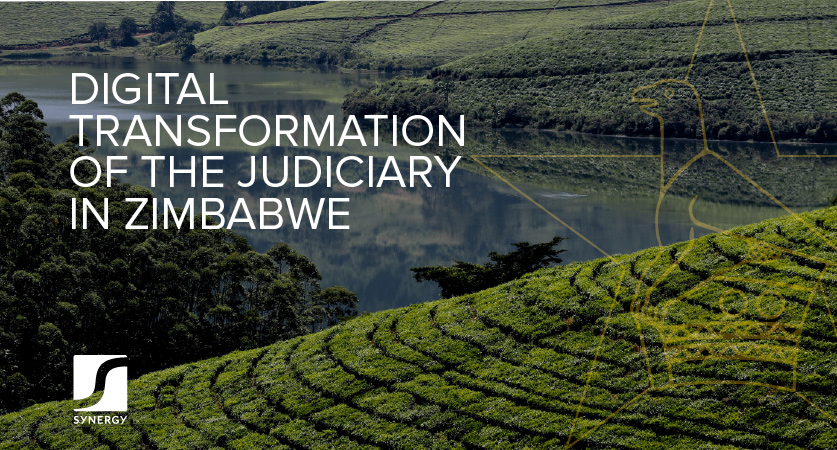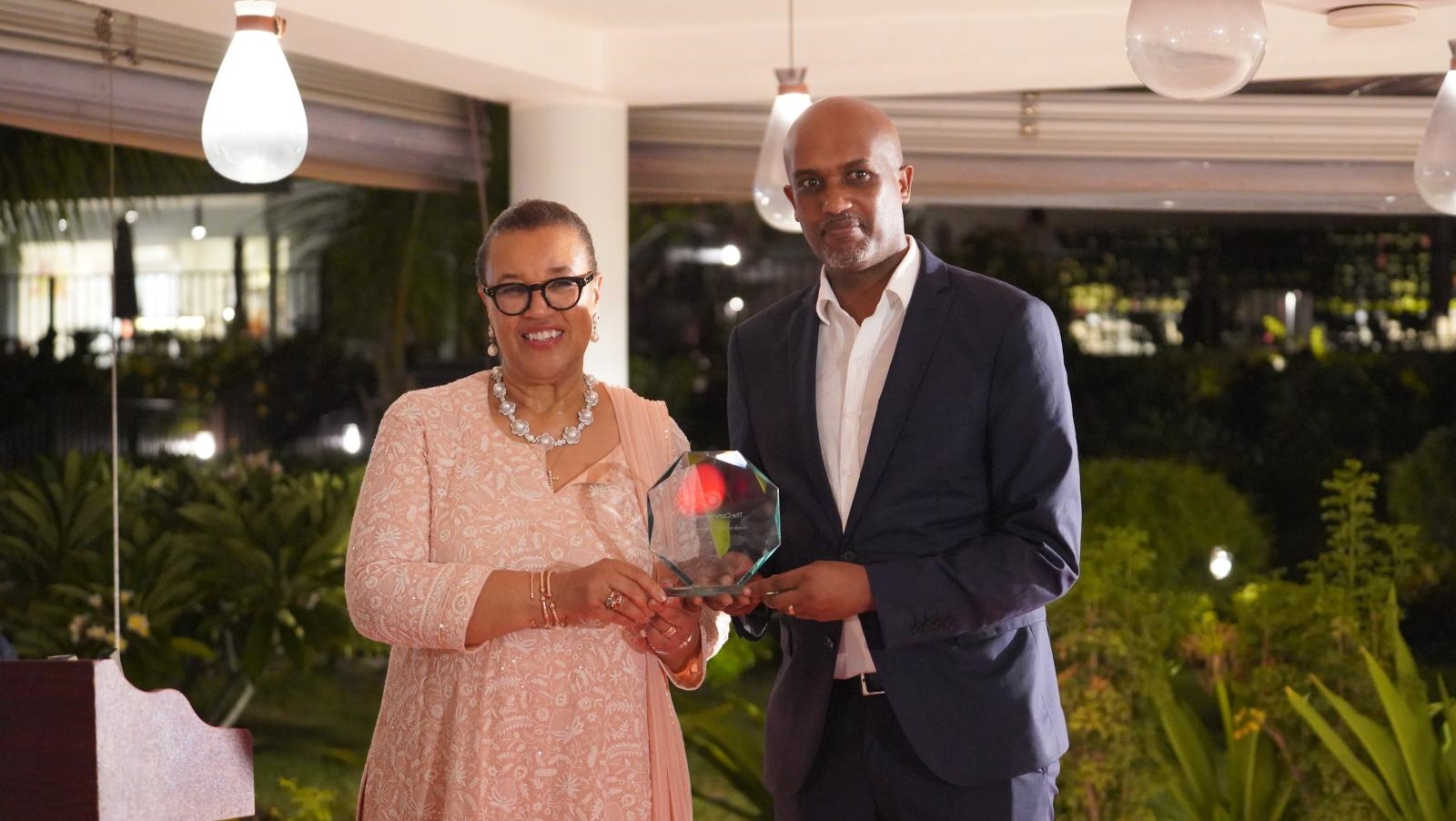Synergy partners with Zimbabwe’s Judicial Service Commission to start the digital transformation of the country’s judiciary enhancing access to justice for all.
Synergy International Systems and Zimbabwe’s Judicial Service Commission will work together to promote the adoption of new technologies and skills development across the judiciary and law society. Synergy, as the technology provider, will design and implement an integrated case management system to support the Judicial Service Commission in its mission to become paperless.
In December 2020, the Judicial Service Commission involved Synergy as a technology partner in an attempt to provide a more accessible and digitized public service and improve easy communication between the judiciary and public.

“Courts could not afford to lag behind in harnessing the potential of ICT in ensuring that access to justice is not disrupted.”
Within the modernization project, Synergy will provide Zimbabwe with a software solution that will integrate the Constitutional Court, Supreme Court, Commercial Court, High Court, Labor Court, Administrative Court, Magistrates Court, Master of High Court and Sheriff of the High Court under one tech umbrella. The solution will help automate and track the entire case lifecycle, from initial filing through disposition and appeal.
During the upcoming years, Synergy will work closely with the Judicial Service Commission in multiple directions:
Digitization: Synergy will help optimize and improve processes using technologies and best practices. This means that Zimbabwe’s judiciary will be able to gradually go paperless reducing case backlog, speeding up case disposition, improving the quality of case adjudication processes. Parallelly, citizens and businesses will have access to justice, from their laptop at home.
Capacity Building: Synergy will also develop a dedicated training program. Along with the technology solution, Synergy will provide both court staff and technical teams with knowledge that will make them more effective and sustainable.
Response to COVID-19: The pandemic exposes a dire need to enhance communication across all possible channels. Synergy will make virtual collaboration technology available to allow better interaction between the judiciary and the public.
Data Collection: Through the integrated case management, platform users will be able to collect and manage consolidated case-specific data, ensure effective case processing, including fee payments and overall court performance, and enhance the transparency and accountability. The new real-time analytic tools will help improve the quality of strategic decisions.
Synergy eCase is a reliable integrated case management solution designed to address the needs of justice sector institutions and organizations. The software allows governments all over the world to significantly enhance their justice systems by streamlining and simplifying the essential processes. Synergy eCase also provides users with real-time data and analytics to inform decision-making.
Today, Synergy case management solution is implemented on all the continents, supporting multiple justice sector institutions in Rwanda, Uganda, Ukraine, Guyana and many other countries.


